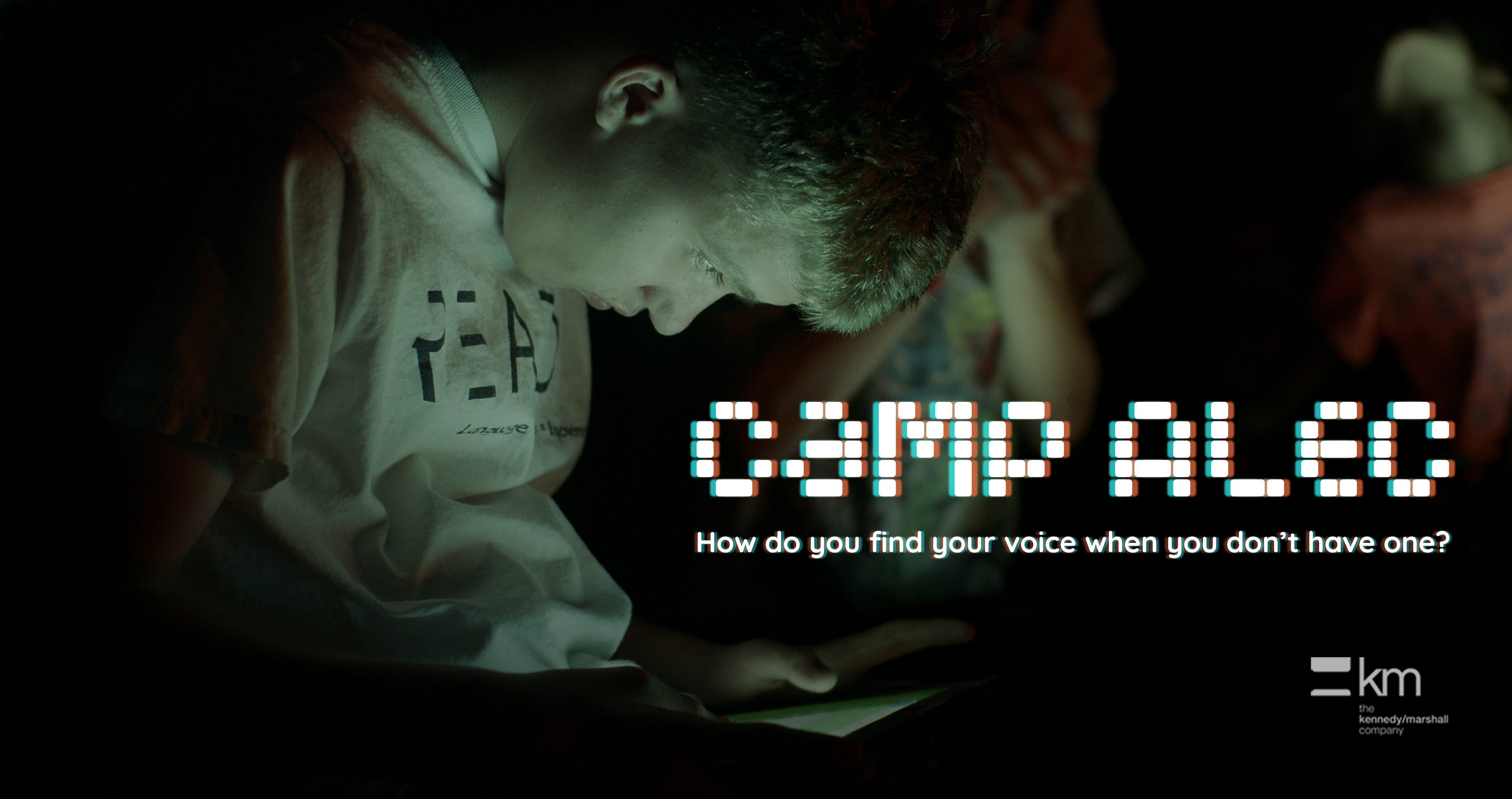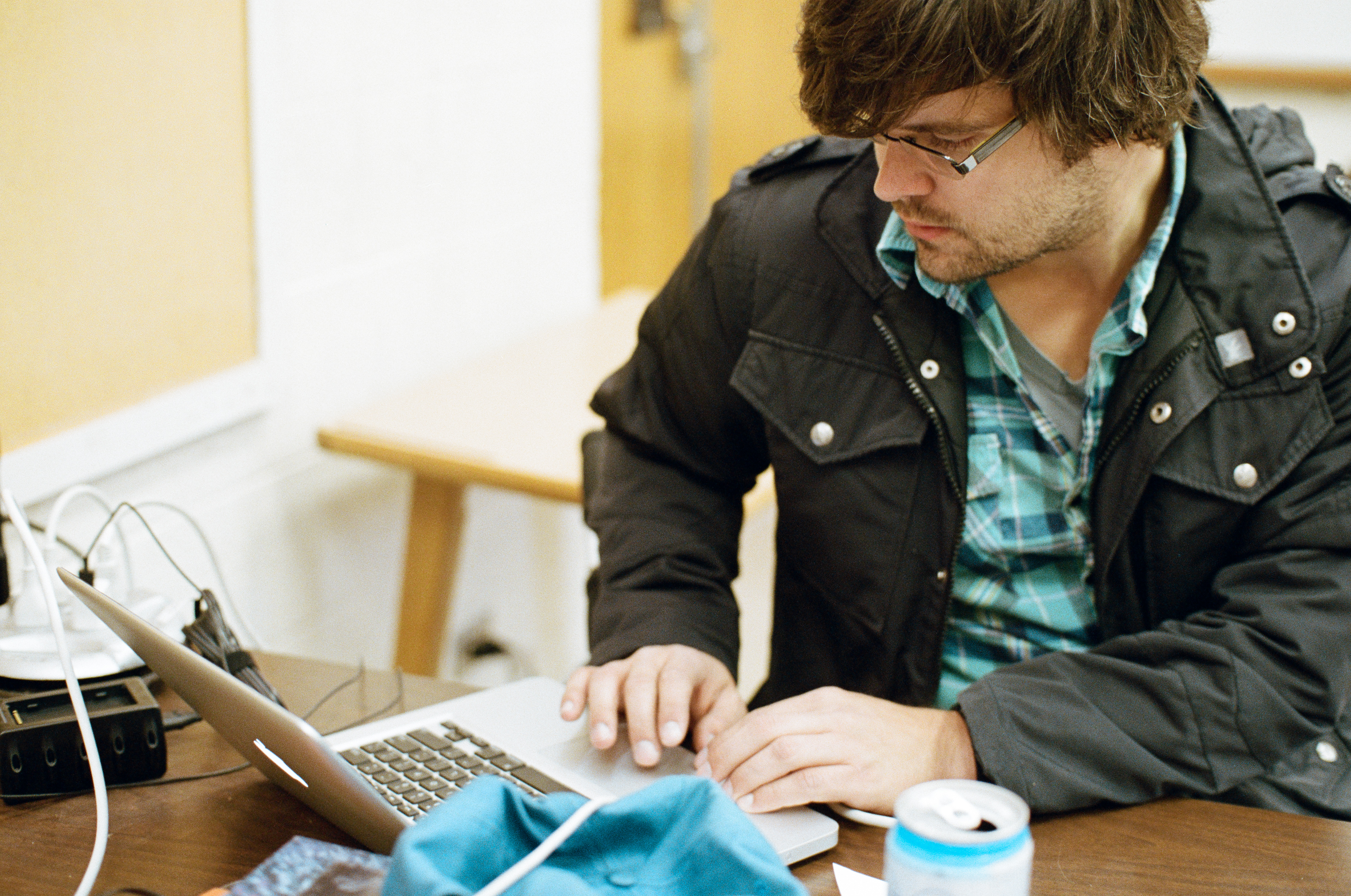Spartan Filmmaker Pairs with Hollywood Producers, Brings it Home with Michigan Documentary on Camp ALEC
Alumnus Steen Wichmann never fails to mention what led to his love of filmmaking and to his study of digital arts and media at MSU's College of Communication Arts and Sciences.
It was 1993. He was 7. And even though he had reached the end of his dinosaur phase, he pleaded and convinced his mother to take him to see Steven Spielberg’s Jurassic Park.
“I remember sitting in the seventh or eighth row and how it was complete euphoria the minute a dinosaur came on the screen,” said Wichmann, now a producer and filmmaker living in Los Angeles. “I couldn’t sleep the entire night. It wasn’t that I was scared, it was that the film turned on my creativity. I simply had to know how the movies brought dinosaurs to life like that.”
Wichmann found out. As a boy, the book “The Making of Jurassic Park” became his bible. He thumbed through it daily, devouring the contents. He told himself he was going to be like Steven Spielberg or Michael Crichton or the respected film producer Kathleen Kennedy when he grew up.
“I knew someday I wanted to bring something impactful to an audience,” he said. “Jurassic Park was my catalyst.”
Now, 26 years later, Wichmann’s dreams have come full circle. In 2019, his short documentary Camp ALEC premiered at the Traverse City Film Festival. Even more, the film was produced by The Kennedy/Marshall Company—co-founded by Frank Marshall and Kathleen Kennedy, the names behind such films as The Curious Case of Benjamin Button, Lincoln, Jurassic World and Sully.
“I think back to watching the VHS of all the Jurassic films and seeing those names over and over again,” said Wichmann. “It’s a dream come true to have their support and to see their names in the credits of our film.”
For the Love of Michigan
Wichmann’s role with the documentary Camp ALEC about a Michigan summer youth camp came through the network of producers, filmmakers and writers he built after moving to Los Angeles in 2013.
A native of Saginaw, Michigan, Wichmann never planned on leaving the state. He loved everything about Michigan, and decided MSU was a great fit for his big screen aspirations.
Wichmann received his bachelor’s in 2007 and his master’s in 2009—both in telecommunication/information studies and media, with a concentration in digital media, arts and technology. At the time, filmmaking was heating up in Michigan, with film incentives bringing top names and big projects to Detroit.
“I had hoped to find my way into the industry with some of those bigger productions,” Wichmann admits. “But I was also interested in moving north to Traverse City.”
Wichmann made the move and immersed himself in filmmaking. He co-founded local film production companies, and crossed paths with like-minded producers, writers and directors. Joining forces with independent filmmaker JohnPaul Morris, Wichmann began work on Future Kings—a futuristic war film based in northern Michigan. The film premiered in 2018, with current plans to develop the Future Kings concept into a franchise.
Despite loving Michigan’s north, Wichmann was drawn to Los Angeles. While maintaining close ties to Traverse City and his Future Kings projects, Wichmann moved to southern California.
“I have to say though, I learned the hard way,” said Wichmann. “As a country boy from Michigan, I had to find a way to distinguish myself. That’s why I started looking for projects that resonated with me, and that I could pour my individuality into.”
Wichmann worked as a producer and filmmaker with small companies and start-ups, keeping his eye toward projects that focused on social justice. His interests eventually led him to Christopher Stoudt—a director, filmmaker and co-creator of the award-winning documentary web series 60 Second Docs.
“Christopher had pitched me on several projects,” Wichmann said. “And then he told me about a family he had met while he was on vacation. It was evident from how excited he was that there was something there.”

Finding the Narrative
Stoudt, Wichmann said, was struck by the powerful voice of a teen he encountered while on a trip to the Grand Canyon. Ben, as Stoudt described him, couldn’t speak in a conventional manner, and used a tablet-sized assistive device to communicate.
“Ben’s parents told Christopher about Camp ALEC and how Ben attended during the summer,” Wichmann said. “Christopher knew I was from Michigan, and immediately saw the potential.”
The two talked about doing a short documentary about the Grand Rapids area camp specifically designed for children with physical disabilities who communicate through AAC—or augmentative and alternative communication. Wichmann contacted camp coordinators Gina Cunningham and Tina Moreno and asked if they were comfortable with him and Stoudt shooting a documentary film onsite.
After receiving a resounding “yes,” Wichmann assembled resources and arranged a Michigan crew. Within a few weeks of Stoudt’s vacation, the two were en route to Michigan and on the ground at Camp ALEC, interviewing campers, staff and amassing four days of footage.
Wichmann said he and Stoudt understood the challenges of quick preparation and a short shooting window, but he said they were also comfortable with that type of terrain.
“From doing 60 second docs, you know how to make a project materialize,” he said. “You grab your materials. You drop in and figure out the story. And you do the shoot. It’s hyper journalism.”
After nearly a week of shooting and six months in post-production, Stoudt and Wichmann pitched the 18-minute documentary to Kennedy-Marshall. Like Camp ALEC, Kennedy-Marshall said yes to the project, agreeing to add post-production resources and handle distribution.
The film premiered in Traverse City in August 2019, and it will show at fall, winter and spring festivals like the Catalina Film Festival, Nashville Film Festival, Washington West Film Festival, Reading Film Fest, Ojai Film Festival, and Bend Film Festival. Talks are also in the works for a longer feature.
“I’m really proud of Camp ALEC and that it allowed us to showcase Michigan and the amazing things that people do here,” said Wichmann. “I have a lot of state pride. I learned so much about myself while living there. But I really attribute MSU to helping recognize and support the dreamer in me.”
By Ann Kammerer
